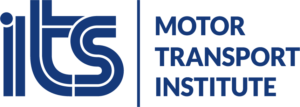Blog
Problem with testing autonomous vehicles in Poland
|
Our country is facing a paradox – on the one hand, we have outstanding engineers and are one of the leaders in the development of automotive technologies, on the other hand, regulations limit the testing of autonomous vehicles on Polish roads. Some road traffic regulations are a significant obstacle to the development of the latest technologies supporting drivers in Poland. Companies operating in the automotive industry are demanding changes in the law to enable testing of new solutions. Also, according to experts, currently testing autonomous vehicles on roads is practically impossible. An article by Jolanta Szymczyk-Przewoźna in Dziennik Gazeta Prawna (DGP) of February 6, 2024 describes the barriers faced by companies wanting to test these innovative solutions. According to the author, the amendment to the Road Traffic Law of 2019 introduced a number of difficulties, including: • the required permit to travel on a specific route makes it impossible to test on different roads and in different conditions; The effects of these regulations are alarming: • only one entity obtained approval for testing within 5 years; The automotive industry, gathered in the Automotive Coalition, is therefore appealing to the Minister of Infrastructure to change the regulations. President Tomasz Bęben from the Association of Automotive Parts Distributors and Manufacturers (SDCM), emphasizes that testing is necessary for development and safety. Professor Paweł Skruch from the University of Science and Technology (AGH) states that current regulations also prevent the use of external professional drivers, which further complicates testing. In turn, prof. Marcin Ślęzak from the Motor Transport Institute (ITS) draws attention to the need to maintain a balance between safety and technological development. He believes that testing is not a routine activity and requires appropriate supervision. In the opinion of prof. Ślęzak, the industry’s demands are right, but the issue of safety should be taken into account. – It is difficult to accept the expected increased latitude for entrepreneurs, and thus consent to indirect limitation of state supervision over ensuring the safety of road users during tests conducted on public roads. This is achieved through a purposefully created message that real-time testing of advanced technologies that correspond to, among others, for control, drive and braking systems in vehicles can be compared to routine activities related to driving a car. This is a false belief – notes Prof. Ślęzak in an interview with editor Jolanta Szymczyk-Przewoźna and adds that for this reason, supervision over research work in the field of driving automation systems, as well as, for example, collecting data on incidents and collisions (which are not recorded in the police SEWiK road accident database) and national coordination of activities (including cross-border tests) should not only be maintained, but even strengthened. This is what happens in most European countries. Examples from other countries, such as the Czech Republic, Great Britain or Spain, show that it is possible to create regulations friendly to testing autonomous vehicles. Permitting research without unnecessary restrictions would facilitate the development of technology and allow Poland to use its potential – we read in today’s DGP. Poland has a chance to become the “Silicon Valley” of the automotive industry, but changes in regulations are necessary. Without them, we risk losing our leading position and being marginalized on the global market – conclude industry experts in Dziennik Gazeta Prawna. It is worth mentioning that the Connected and Autonomous Vehicles Competence Center, operating at the Motor Transport Institute, which was established as a result of the strategic government program AV-PL-ROAD, already in 2022 began work on its own proposal of assumptions for changing regulations as part of legislative workshops conducted in cooperation with interested entrepreneurs. The work was carried out to meet the demands of the environment regarding the reduction of existing barriers to research work, while at the same time strengthening the supervision of the minister responsible for transport, who is also the chairman of the National Road Safety Council, by introducing the institution of the National Research Coordinator. The Motor Transport Institute kept the Ministry of Infrastructure informed about these activities on an ongoing basis. |


